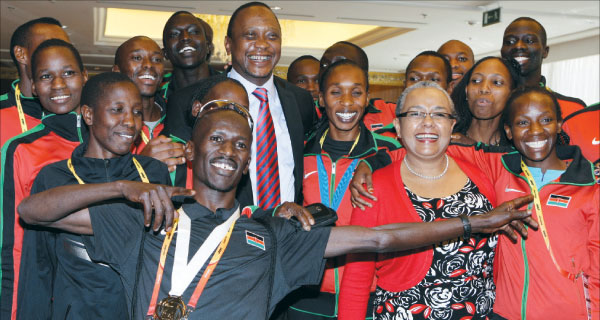×
The Standard e-Paper
Smart Minds Choose Us
 |
| President Uhuru Kenyatta will give state commendations to selected individuals during celebrations to mark 50 years (Jubilee) of independence on December 12. |
By JOE KIARIE
Exactly who should receive presidential awards and recognition as Kenya marks 50 years of independence, towards the end of this year?